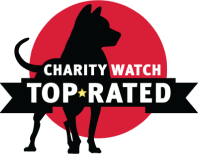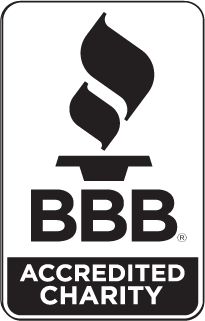In Malawi, a Single Mother Fights to Save Her Son’s Life
When her son’s health started fading, Rose had no choice but to carry him 10 miles to reach the closest hospital. Now, with help from HOPE, they are taking steps toward a healthier future.

Evance was on the brink of death.
A playful boy just 10 years old, he loved chasing his homemade soccer ball around the family’s home in rural Malawi. Now, suddenly, he couldn’t walk. His neck was swelling, his health deteriorating by the minute.
And his mother, Rose, was terrified.
Rose’s family has a history of health challenges. Back in 2008, Rose was diagnosed with HIV, when Evance was less than a month old and his sister, Catherine, was only 3. She began antiretroviral treatment and adhered to it successfully. But it wasn’t long before both of her children got sick too, and, like their mother, tested positive for HIV. The whole family has been taking ARVs since then — medication that has been vital in protecting their lives.
When Evance’s health took an unexpected turn for the worse, Rose knew there was no time to waste. But the nearest hospital was 10 miles away. They had no transportation, and there was no one to turn to for help. So Rose did the only thing she could: she strapped her little boy to her back and started walking.

Changing the Course of Treatment
Malawi has one of the highest rates of HIV in the world: More than 1 million people in the country live with HIV, and women and young people are at highest risk. HIV is the leading cause of death in Malawi, and also the most serious risk factor for developing TB. Roughly half of people with HIV in Malawi are also infected with TB.
When Rose and Evance finally arrived at the hospital that day, they were told his symptoms matched a case of TB. After checking his viral loads, he was diagnosed with concurrent TB/HIV and put on a new treatment plan.
“I was scared,” Rose says, “but the nurses comforted me and told me he would get better.”
It was clear it was time to change his course of treatment and recheck Catherine and Rose’s viral loads. But something else happened that day — Rose and Evance were connected with Ellina, a Project HOPE community leader, who would become an important part of their family.
Ellina began visiting the family every week to check on their health, making sure that Rose and her kids had their viral loads monitored every 3-6 months. She still visits them every week, and will keep visiting until Evance’s levels have been suppressed for a year — however long that takes.

Moving Forward With HOPE
Rose’s family lives in the same house where she was born 45 years ago, off a dirt road in a small village near the city of Zomba.
Nearly 3 out of 4 people in Malawi live on less than $2 a day, and Rose is one of them. As a single mother and the sole provider for her family, she carries water to brickmakers and takes other piecemeal work whenever and wherever she can find it. But it’s not enough. The kids share a small cloth to sleep under at night, and three meals a day are never a guarantee. The roof is leaking, and Rose does not have enough money to repair it in time for the rainy season. When it rains, they will have to ask for shelter at a neighbor’s house.
“I worry about not having a roof on my house to protect us when it rains,” she says. “I worry about not having enough food or any bedding for my kids and how I will provide school uniforms and bags.”
But they have each other. Catherine and Evance are as close as brothers and sisters can be. Rose says they never fight, and even remind each other to take their medicine.
And thanks to ongoing support from HOPE, they also have their health. In Evance’s eyes, Ellina is the one who healed him.
Through the One Community program, run by HOPE in partnership with Johns Hopkins University and Plan International, Evance and Catherine are also part of a teen club where they receive their medication and make new friends. Together they learn about best health practices — topics like abstinence and safe sex, which are essential in helping prevent the spread of HIV.
Rose and Ellina say they’ve become “like family” to one another.
“Having Ellina come visit us gives me comfort, especially when Evance was sick,” Rose says. “She comforted me and gave me psychosocial support when I needed it.”
She also brings food to share and encourages the kids to stay focused in school. Evance likes math and wants to be a soldier. Catherine wants to be a nurse.
“I want my children to grow up and become self-reliant,” Rose says. “I dream of having a healthy life where I don’t get sick.”








